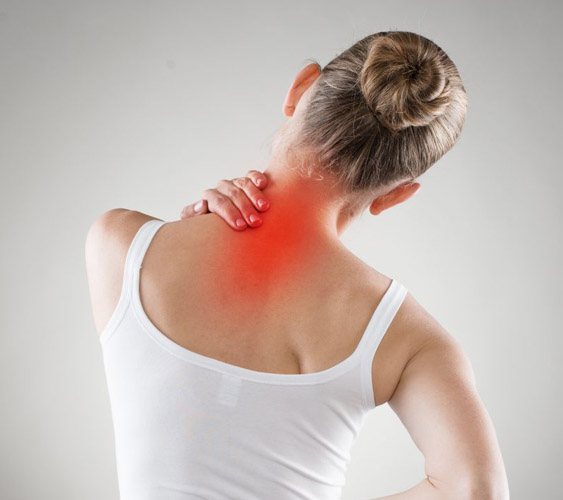Do you wake up in the morning feeling like you “slept wrong” because you have a crick in your neck?
If you experience neck pain, you’re not alone. It’s most often attributed to neck arthritis, or cervical spondylosis, an age-related degeneration of the spine, and 85 percent of people over 60 are affected. The neck pain some people experience is debilitating, while others have few symptoms beyond a tingling, pins-and-needles sensation.
When I wake with the feeling that I can’t turn my head, I usually blame my pillow. But the causes are as varied as the discomfort levels. I read in bed and spend a fair amount of time looking down at my phone or sitting at my desk, bent over the keyboard. Holding your head at an unnatural angle over time will cause neck pain. Stress, inflammation, poor posture, genetics and occupational hazards all take their toll on neck health. But spondylosis is joint damage that comes from wear and tear and age-related degeneration of neck bones.
To understand neck arthritis and the part aging plays, it helps to know about the cervical discs and back ligaments. The Mayo Clinic website explains:
Dehydrated discs: Discs act like cushions between the vertebrae of your spine. By age 40, most people’s discs begin drying out and shrinking, which allows more bone-on-bone contact between the vertebrae.
Herniated discs: Age also affects the exterior of your spinal discs. Cracks often appear, leading to bulging (herniated) discs, which can press on the spinal cord and nerve roots.
Bone spurs: Disc degeneration often results in the production of extra bone in the body’s misguided effort to strengthen the spine. These bone spurs can pinch the spinal cord and nerve roots.
Stiff ligaments: Ligaments are cords of tissue that connect bone to bone. Spinal ligaments can stiffen with age, making your neck less flexible.
Most neck pain doesn’t stem from anything medically serious, so it can be safe to try self-care strategies before seeking medical help. Over-the-counter pain relief and massage are options, and experts say an ice pack wrapped in a thin towel is best for immediate relief. However, if your neck pain is so severe you can’t sit still, or if it is accompanied by fever, pain shooting down an arm or loss of sensation in your hand, contact a medical professional right away. A heart attack can cause neck pain, and severe symptoms could be a sign of something very serious, so trust your instincts if you believe you have more than a routine neck ache.
But for “normal” neck pain, WebMD offers some stretches that will loosen up that stiffness. When dealing with age-related cervical spondylosis, your best defense is a good offense: move frequently, don’t sit in one position for too long, sleep on a pillow—yes, only one—that supports your head and neck, and be mindful when carrying heavy handbags and weighty objects that pull on your neck, like toddlers. Or dogs. (I’m looking at you, Maisy.)

Pepper Evans works as an independent-living consultant, helping older adults age in place. She is the empty-nest mother of two adult daughters and has extensive personal and professional experience as a caregiver. She has worked as a researcher and editor for authors and filmmakers. She also puts her time and resources to use in the nonprofit sector and serves on the Board of Education in Lawrence Township, NJ.



